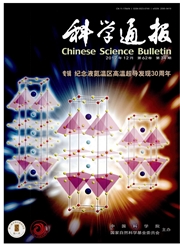

 中文摘要:
中文摘要:
在东方云南省的在早寒武纪的 Chengjiangdeposits 的劳动密集型的收集的努力,中国导致了特别包含很好保存的软身体的石块集中的许多地平线的发现,许多哪个能被分到也单音的特定的集中或 paucispecific 集中。这些石块集中的特征支持生产 tempestites 的经常的暴风雨事件主要贡献了的假设在 Chengjiang 的丰富的软身体的石块的保藏扔,并且显示在这个区域的生态的网的平衡被如此的暴风雨事件经常可能在那地质的时间期间破坏或弄翻。在在如此的石块集中的一个石块集合的动物可能占据了类似的生态的简历狂饮。
 英文摘要:
英文摘要:
The efforts of labor-intensive collecting in the Early Cambrian Chengjiang deposits in eastern Yunnan Province, China led to the discovery of many horizons containing exceptionally well preserved soft-bodied fossil concentrations, many of which can be assigned to either monospecific concentrations or paucispecific concentrations. The features of these fossil concentrations support the hypothesis that frequent storm events producing tempestites mainly contributed to the preservation of abundant softbodied fossils in the Chengjiang deposits, and indicate that the balance of the ecological web in this region was probably frequently destroyed or upset by such storm events during that geological time. Animals in a fossil assemblage in such fossil concentrations probably occupied similar ecological biotopes.
 同期刊论文项目
同期刊论文项目
 同项目期刊论文
同项目期刊论文
 期刊信息
期刊信息
